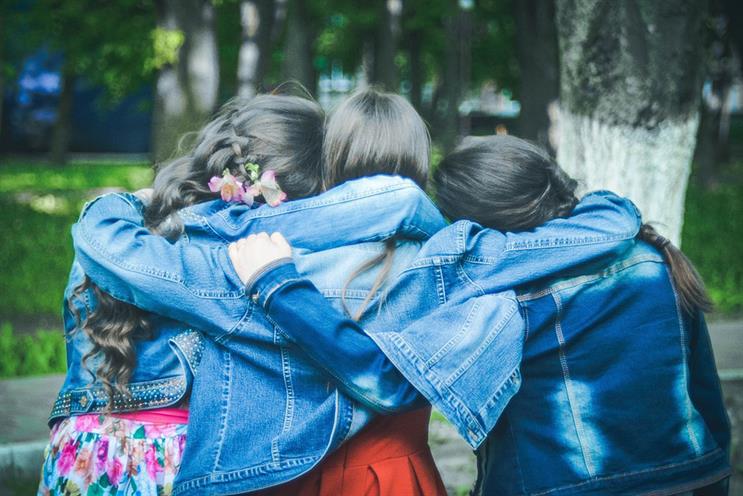It would appear that we have a crisis on our hands.
Although today’s young people are the most connected ever, thanks to social media, they are also the loneliest. And this – along with the wider impact of technology on interpersonal relationships – has significant implications for how brands need to act.
There are a number of indicators that suggest we’re losing our grip on real social connections.
The US is in the midst of a loneliness epidemic, with 40% of adults reporting they feel lonely, . Furthermore, lack of social connection is , with loneliness potentially taking as many years off sufferers’ lives as smoking 15 cigarettes a day.
Closer to home, academics at the University of Manchester, Brunel University London and University of Exeter found 16- to 24 year-olds to be the loneliest of any age group – not, as we might imagine, the over-seventies. In fact, such as Facebook. Social media has left us disorientated about what meaningful interactions look like and that is having a detrimental effect on our mental wellbeing.
You only have to look at recent news headlines – from Instagram’s "'like' ban" to singer John Newman’s well-publicised battle with social media-induced depression – to realise that we can no longer ignore the need to create healthier and more authentic environments across social platforms. After all, if people are struggling to have positive interactions with each other, how are brands supposed to?
We have to ask ourselves about the role that social platforms now play. What’s in it for the audience? The growing commercialisation of these platforms has taken the shine off their ability to enable users to stay in touch or reconnect with long-lost loved ones. And the transaction cost of using them – with users handing over data in exchange of connection – is a value exchange that feels increasingly one-sided.
Thankfully, revealed that people still value honesty and authenticity as the most important qualities we seek in our best friends, while having a large social network is the least important. As a result, we’re seeing people shift from public platforms to more private, enclosed spaces, such as messaging apps, to seek connections with their inner circles of friends and family. So perhaps the "sociability" of social media hasn’t completely vanished; it has just moved to new spaces. If so, we need to be mindful that not all social connections are made equal.
In the marketing world, word of mouth and peer-to-peer recommendations are still some of the most influential touchpoints for brands, so we heavily rely on friendships to identify potential audience pools to amplify our communications. But there’s a danger that we’re facing a future where social behaviour not only determines which brand message you see, but also dictates your opportunities in the real world.
The shows that we’ve already arrived here – individuals with high social credit scores are given perks from discounted energy bills to better travel deals to even the ability to jump hospital queues! That's just another indicator that if we continue in the direction we’re headed, our friendships will become more self-serving and social-climbing.
So, what can and should brand owners take away from all this today on the United Nations' officially designated International Day of Friendship?
-
In the face of the loneliness crisis, let’s seize the opportunity to use digital spaces to bring together like-minded people and encourage the forging of meaningful connections. There’s no doubt that social media still has the potential to be a force for good, but brands need to reflect on what behaviours they’re encouraging online and ensure they’re not choosing quick wins to the detriment of their audiences' online relationships.
-
Work harder to find a space where brands can legitimately interact with authenticity; this might not be on social platforms. Brands need to identify where the audience energy is greatest and fuel conversations that people actually care about, rather than be swayed by shallow follower and "like" numbers. Bath-bomb purveyors Lush bravely deleted social media accounts earlier this year in favour of more personal channels to communicate their environmental and social values.
-
Recognise that social media groups don’t always represent someone’s inner circle. Remember that true friendships aren’t built on interaction for interaction’s sake or sharing everything with everyone. Nor is all influence meaningful – or necessarily good. Engagement via Facebook does not make you a life-long friend.
-
Do the necessary homework to understand potential growth audiences by analysing business/category/audience data at your disposal, rather than rely on superficial social metrics to forecast success. Earlier this month, Dave Trott called out an example of influencer @Arii, who had 2.6 million followers but couldn’t successfully launch a clothing line. Followers aren’t always customers.
There’s still hope that the strongest friendships in the future will be driven by empathy, listening and shared experiences – just as they always have been. Brands have a part to play in reinforcing these values and can undoubtedly benefit from doing so. But we should also use Friendship Day to reflect on our individual responsibility to preserve the integrity of our closest relationships. If we don’t, the most natural of human needs – to connect with people – risks becoming less personal, less meaningful and more filtered.
Sabrina Francis is group brand lead at Yonder Media


